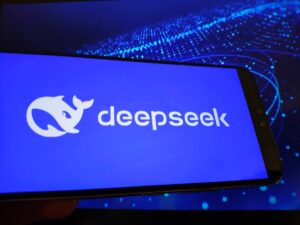ChatGPT Introducing Ads: Potential ‘Free-User Monetization’ in 2026?

ChatGPT and the Future of Monetization for Free Users
With the increasing popularity of AI tools like ChatGPT, discussions about how these services will evolve, particularly in terms of monetization, have gained traction. Notably, there are speculations around implementing advertisements for free users starting in 2026. This could bring a significant shift in how users interact with the platform.
Understanding ChatGPT
What is ChatGPT?
ChatGPT is an AI language model developed by OpenAI. It is designed to understand and generate human-like text based on the input it receives. Users can engage with ChatGPT for a range of purposes, from casual conversation and information seeking to more complex tasks like content creation and programming help.
Current Access Models
As of now, OpenAI offers different access tiers for ChatGPT:
- Free Access: Users can interact with the AI without any fees but may have limitations in terms of features and responsiveness.
- Subscription Model: Paid subscribers, known as ChatGPT Plus users, benefit from faster response times, priority access during peak times, and additional features.
Speculations on Monetization Strategies
The Shift Towards Ads
As the demand for ChatGPT grows, OpenAI appears to be exploring how to effectively monetize the free version of the service. The idea of integrating advertisements could serve as a primary revenue stream. Here are some key points regarding this shift:
- Ad placement: Ads would likely be strategically inserted within the user interface, ensuring they do not disrupt the overall user experience.
- User targeting: Based on user profiles and interaction history, advertisements could be tailored, making them relevant and less intrusive.
- Balance of content: OpenAI would need to maintain a careful balance between ads and the primary content to keep users engaged without feeling overwhelmed.
Implications for Users
While the change may provide a revenue source for OpenAI, it raises several concerns for users:
User Experience:
- Disruption: Users might find ads distracting, affecting their engagement with the AI.
- Content quality: There may be concerns about whether the presence of ads will alter the nature of the interactions.
Privacy Concerns:
- Data Usage: Targeted advertising usually requires data on user behavior and preferences, raising questions about user privacy and data management.
- Transparency: OpenAI would need to clarify how user data is collected and used for ad targeting.
- Access and Equity:
- Limited free features: Users who prefer the free model might receive a less optimal experience than paid users, potentially leading to disparities in access to high-quality information and AI interactions.
The Future Landscape
As we approach 2026, the potential introduction of ads in the free version of ChatGPT could significantly influence how users interact with AI tools. It marks a critical point for OpenAI, which must navigate the implementation of monetization while maintaining user engagement and trust.
Concluding Thoughts
The future of ChatGPT seems poised for transformation with these new monetization strategies on the horizon. Users will need to stay informed and adapt to these changes as they occur, ensuring they continue to benefit from the innovations AI has to offer. As discussions continue, it remains to be seen how this balance will be achieved between profitability and maintaining a valuable user experience.






